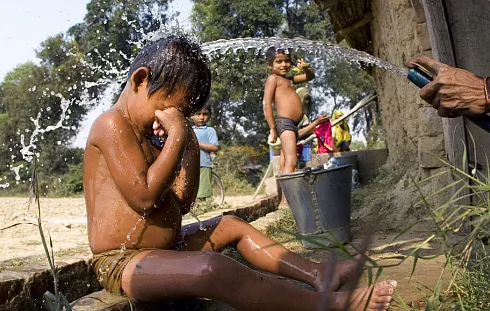Record-Breaking Heat in Morocco Sparks Unprecedented Surge in Air Conditioning Demand
As Morocco faces unprecedented heatwaves this summer, the demand for air conditioning has reached record levels, with both residential and commercial sectors scrambling to secure cooling solutions. In many parts of the country, temperatures have soared to new highs, forcing many citizens to seek relief from the intense heat. With the rising temperatures showing no signs of abating, air conditioners have become a crucial necessity rather than a luxury.
The extreme heat, which has been recorded at over 45°C (113°F) in several areas, has left Moroccans struggling to stay cool, as cities and towns grapple with the harsh realities of climate change. As a result, there has been a marked increase in the sale of air conditioning units, with retailers reporting sales soaring by up to 30-40% compared to previous years.
The Impact of Soaring Temperatures
In the coastal cities of Casablanca and Rabat, the heat has triggered a sharp rise in air conditioning sales, particularly in the middle to high-income neighborhoods. Businesses, too, are increasingly relying on air conditioning systems to maintain a comfortable environment for both employees and customers. In addition to cooling, these systems are seen as vital to ensuring productivity and providing a safe working environment during these extreme conditions.
In Marrakech, Fes, and other inland cities, where temperatures often exceed 45°C (113°F) during the summer, the demand is even higher. With many homes lacking central air systems, portable and window-mounted air conditioning units have become essential. Retailers are struggling to keep up with the sudden increase in demand, and many have reported supply shortages due to a global supply chain crisis.
Climate Change and Changing Habits
Experts suggest that the rise in demand is not just due to this year’s extreme heat but is indicative of a broader trend linked to climate change. Morocco, like many other parts of the world, is seeing more frequent and intense heatwaves, which are causing a shift in consumer behavior. The country's climate is becoming more volatile, and as a result, air conditioning is increasingly being seen as a necessary investment.
“The heatwaves we are experiencing are no longer isolated events but are becoming more frequent,” says Dr. Youssef El Mansouri, a climatologist based in Rabat. “As temperatures continue to rise, more and more Moroccans will look to air conditioning not just as a comfort, but as a survival tool in some cases."
A Growing Market for Air Conditioning
In response to the growing demand, local businesses are investing in expanding their product offerings. Retailers are not only providing air conditioners but are also offering extended warranty packages, installation services, and energy-efficient models. There’s also been an uptick in the number of energy-efficient, eco-friendly models, catering to consumers who are both climate-conscious and seeking to lower electricity bills in a country where energy costs are rising.
Additionally, with rising temperatures, some businesses are looking into industrial-scale air conditioning systems to maintain indoor comfort in warehouses, factories, and commercial spaces. The agricultural sector has also noticed the need for climate control in greenhouses to ensure crops remain viable under intense heat conditions.
The Economic and Social Implications
While air conditioning offers relief, it also brings a series of economic and social implications. The rising demand for these units underscores the growing gap between the wealthier and lower-income populations. In wealthier neighborhoods, where air conditioning is considered a basic necessity, the increased usage is seen as part of daily life. However, in lower-income areas, many families still struggle to afford the high upfront cost of installing air conditioners, let alone the ongoing electricity expenses.
Electricity consumption has been surging as a result, prompting concerns about the country’s energy infrastructure. The national grid has faced strain during peak hours, and there have been reports of power outages, particularly in regions experiencing the highest temperatures.
In response, the government has emphasized the importance of adopting energy-efficient cooling solutions. There are ongoing initiatives to improve the overall energy infrastructure and invest in renewable energy sources to meet the growing demand without further taxing the environment.
A Long-Term Shift in Consumer Behavior
As the temperature continues to climb, experts predict that air conditioning demand will only increase in the coming years. Morocco, which is already facing water shortages, deforestation, and other environmental challenges, may have to reevaluate how it plans for future heatwaves. While the current spike in air conditioning usage is driven by immediate relief from heat, it highlights the need for sustainable solutions to combat the long-term effects of climate change.
“The rise in air conditioning use is just one example of how climate change is altering our way of life,” says El Mansouri. “If this trend continues, we will need to adapt not just in terms of technology but also in our approach to urban planning and resource management."
In the meantime, Moroccans are taking steps to stay cool during this summer’s record heat, while retailers, businesses, and local governments scramble to meet the growing demand for air conditioning—and prepare for a hotter future.
